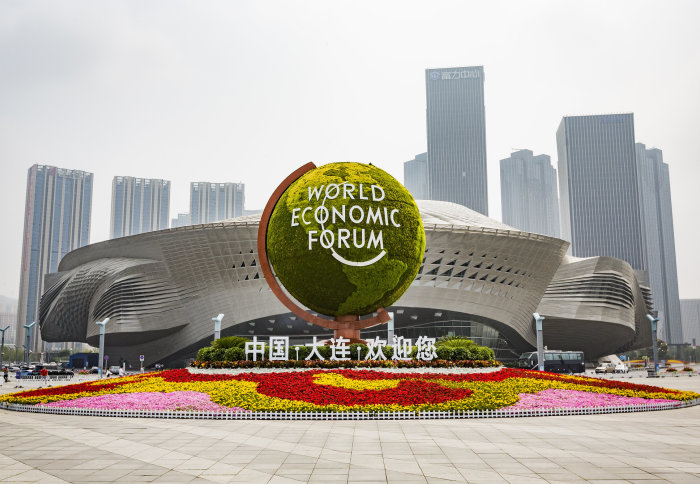Two Imperial researchers named World Economic Forum Young Scientists

WEF Annual Meeting of the New Champions
Two Imperial researchers have been named World Economic Forum Young Scientists.
The two researchers, Dr Andy Tay Kah Ping, from the Department of Bioengineering and Dr Nicola Gasparini, from the Department of Chemistry, were selected for their record of research excellence and commitment to serve society at large through exceptional contribution.
The Young Scientists community was created in 2009 to engage rising-star researchers in the work of the World Economic Forum.
WEF says that the Young Scientists are a community of extraordinary scientists from various academic disciplines and geographies. They are committed to integrating scientific knowledge into society for the public good. In the context of the Fourth Industrial Revolution, the community helps leaders engage with science and the role it plays in society.
The Young Scientists are invited to WEF's Annual Meeting of the New Champions.

Last year, Imperial engineer Dr Enass Abo-Hamed co-chaired the Annual Meeting in Dalian, China.
We spoke to this year's newest additions:
Andy Tay Kah Ping - Bioengineering

What does it mean to be selected as a WEF young scientist?
Being selected as a WEF Young Scientist tells me that my research developing immunomodulatory technologies to treat cancer is being recognised. It also shows that the WEF appreciates my commitment to science communications and mentoring.
What opportunities will it offer you?
As a scientist, I have heard criticisms that research is slow and it does not add value to our lives. The WEF receives great publicity and I hope to use this platform to demonstrate the importance of investing in education and science research.
What is your particular research interest or project?
I work in the area of immuno-engineering. I am developing innovative technologies and materials that will allow us to better engineer immune cells and tissues to support life-long immune surveillance.
What are the ambitions and applications for your research?
Our immunity protects us from infections and cancer. However, with ageing, our immune systems start to lose their abilities to detect and destroy pathogens and mutated cells. My ambition is to understand how we can slow down or even reverse immuno-senescence to support life-long immune surveillance.
Nicola Gasparini - Chemistry

What does it mean to be selected as a WEF young scientist?
It is an honour to be selected as a WEF young scientist. This is an exciting opportunity to maximise the impact and the importance of novel technologies, such as renewable energies, with a wider audience. Being part of this group of emerging scientist will help me to develop strategies and ideas, which can have potential benefits for the society and healthcare system.
What opportunities will it offer you?
With the help of the Young Scientists community I would like to advance issues related to the importance of renewable energies and food security, two of the greatest global threats in modern society.
What is your particular research interest or project?
My research interest lies on the fundamental and application-oriented research in lab-scale and large-area printed electronics, in particular photovoltaics and photodetectors. I am now exploring new applications of printed electronics, such as narrowband organic photodiodes with particular interest in the near and mid infrared region. This development is of particular interest for biomedical applications, where cost effective material choices remain scarce and mechanical flexibility is required.
What are the ambitions and applications for your research?
The applications of my research can be directed towards diversifying energy production and developing novel applications in the fields of functional electronics and biomedical engineering. In the long term, examples of biomedical applications can be biological vision applications, such as retinal prostheses.
--
Photographs (Main image and second): Copyright World Economic Forum
Article text (excluding photos or graphics) © Imperial College London.
Photos and graphics subject to third party copyright used with permission or © Imperial College London.
Reporter
Stephen Johns
Communications Division